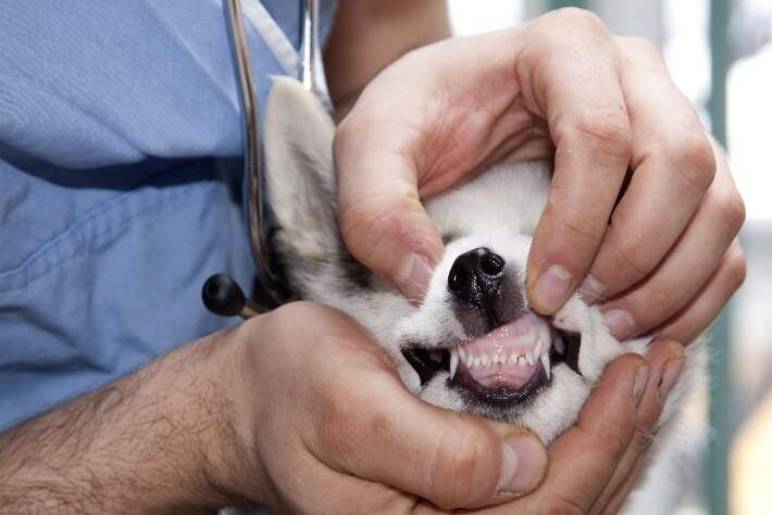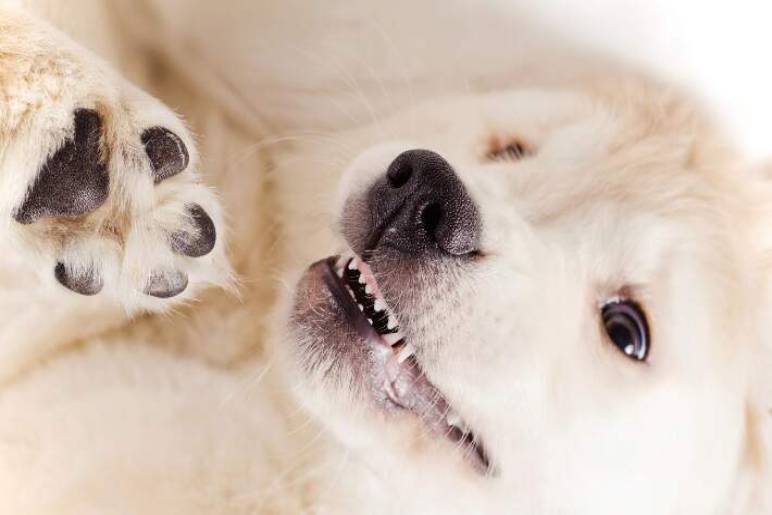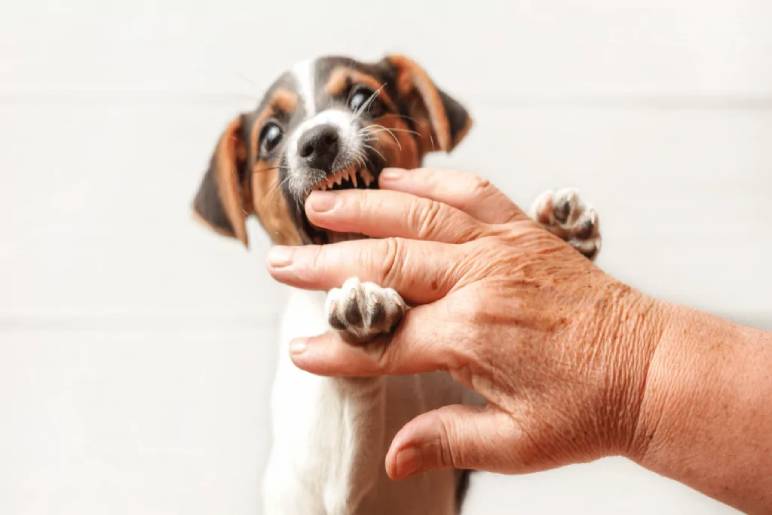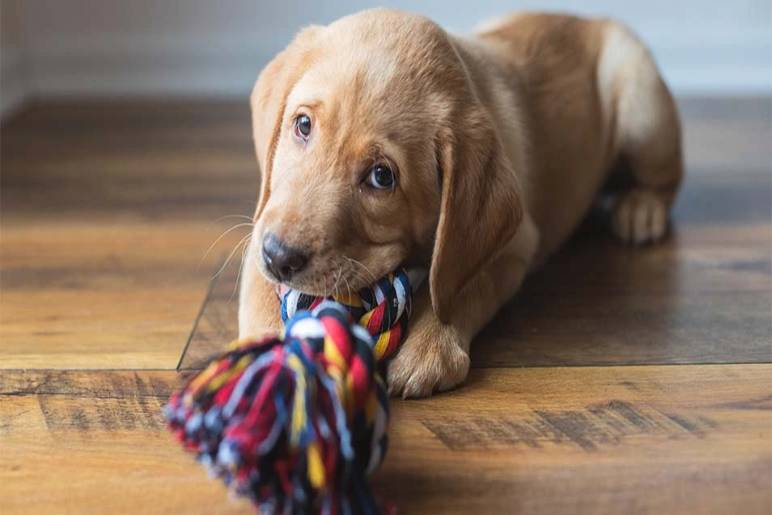Teething is a challenging yet significant phase in a puppy’s growth. Just like human babies, puppies experience discomfort as they grow their first set of teeth, and again as these are replaced by their adult teeth. Understanding when this phase begins and ends can help you provide the right care and training for your furry friend. In this blog, we’ll explore the stages of puppy teething, common issues, and tips to manage this period effectively.
What is Puppy Teething?

Teething refers to the process of puppies growing and losing their baby teeth (also known as deciduous teeth) before their permanent teeth come in. This phase typically involves:
- Chewing: Puppies chew on various items to alleviate the discomfort of teething.
- Drooling: Excessive saliva is common as teeth break through the gums.
- Mild Irritability: Your puppy may exhibit slight behavioral changes due to the pain.
Knowing the timeline of teething can help you anticipate and address these behaviors.
The Teething Timeline

- 2 to 4 Weeks Old: Baby Teeth Begin to Emerge
- Puppies are born without teeth.
- By the age of 2 to 4 weeks, their 28 baby teeth start to emerge.
- 6 to 8 Weeks Old: Full Set of Baby Teeth
- By 8 weeks, puppies usually have all their deciduous teeth.
- These teeth are sharp and temporary.
- 12 to 16 Weeks Old: Baby Teeth Start Falling Out
- The teething phase begins in earnest as baby teeth start to fall out.
- This is when discomfort increases, leading to more chewing and biting behaviors.
- 6 Months Old: Permanent Teeth Replace Baby Teeth
- By 6 months, most puppies have their full set of 42 adult teeth.
- The teething process typically concludes around this time.
When Do Puppies Stop Teething?

Most puppies stop teething by 6 to 7 months of age. However, larger breeds may take slightly longer to complete this process. By this stage, all their adult teeth should have emerged, and the urge to chew diminishes. If teething persists beyond 8 months, consult your veterinarian to rule out dental issues.
Signs That Your Puppy Is Teething
- Increased Chewing: Puppies gnaw on furniture, shoes, or toys to ease gum discomfort.
- Swollen or Bleeding Gums: Slight bleeding is normal as new teeth emerge.
- Dropping Teeth: You may find small teeth around the house or in their toys.
- Bad Breath: Temporary halitosis is common during teething.
How to Help Your Puppy During Teething

Here are some ways to make this phase more comfortable for your puppy:
- Provide Chew Toys:
- Opt for puppy-safe chew toys made of durable rubber or nylon.
- Freeze toys to provide soothing relief for sore gums.
- Cold Treats:
- Offer frozen carrots or dog-safe ice cubes as a cooling remedy.
- Practice Positive Reinforcement:
- Reward your puppy for chewing appropriate items to encourage good habits.
- Supervise:
- Keep an eye on your puppy to prevent them from chewing dangerous items like wires or toxic plants.
- Regular Dental Care:
- Start brushing your puppy’s teeth early to establish a routine.
Common Teething Problems
Teething doesn’t always go smoothly. Here are some potential issues and their solutions:
- Retained Baby Teeth: Sometimes, baby teeth don’t fall out, causing crowding. A veterinarian may need to extract these teeth.
- Excessive Pain: If your puppy appears unusually distressed, consult your vet for pain relief options.
- Chewing on Dangerous Items: Puppy-proof your home to prevent accidents.
Training Tips During Teething
Teething is an excellent time to teach your puppy what is acceptable to chew. Here’s how you can manage training during this period:
- Redirection:
- Redirect your puppy’s chewing behavior to toys or treats.
- Consistency:
- Maintain consistent rules to prevent confusion.
- Reward-Based Training:
- Use treats and praise to reinforce good chewing habits.
If you’re struggling with training your puppy, consider seeking professional help. For example, if you’re in Liverpool, reaching out to a Dog Trainer Liverpool can ensure your puppy grows into a well-behaved adult dog.
Teething and Diet
During teething, your puppy’s gums may be sensitive, making it difficult for them to eat. Here are some dietary adjustments to consider:
- Softened Kibble: Moisten their food with water or broth to make it easier to chew.
- Puppy-Specific Foods: Ensure the diet is rich in nutrients to support dental and overall health.
- Avoid Hard Treats: Skip anything too hard, such as bones, during this period.
When to Consult a Veterinarian
While teething is a natural process, there are instances when you should consult your vet:
- Teething lasts beyond 8 months.
- Your puppy’s gums appear overly swollen or infected.
- Retained baby teeth cause crowding or misalignment.
- Unusual signs like excessive drooling or refusal to eat.
Conclusion
Teething is a temporary yet crucial phase in your puppy’s development. By understanding the timeline and providing the right support, you can make this period more manageable for both you and your furry friend. Remember to stock up on chew toys, practice positive reinforcement, and maintain regular vet check-ups to ensure a smooth transition to adulthood.
If you’re finding it challenging to manage your puppy’s behavior during teething, professional trainers can provide invaluable assistance. For those in Liverpool, a Dog Trainer Liverpool can offer expert advice and personalized training plans tailored to your puppy’s needs.
With patience, care, and the right strategies, teething will soon be a thing of the past, and your puppy will be ready to enjoy life with a healthy set of adult teeth.
Have A Look :-
